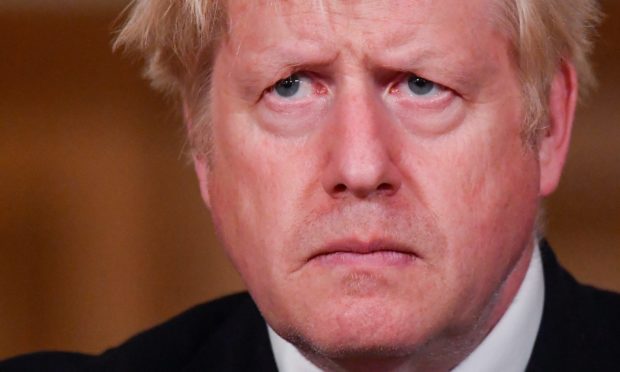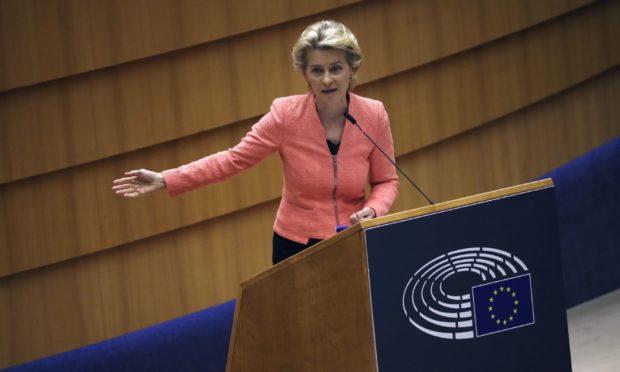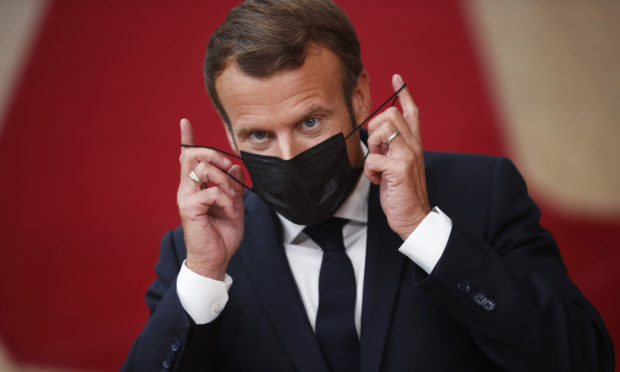Boris Johnson is to head to Brussels for Brexit talks, as “significant differences” remain between the UK and EU negotiating teams.
The prime minister has ordered officials to “take stock” ahead of a face-to-face meeting with EU president Ursula von der Leyen in the coming days.
Negotiators have, despite intensive talks over the past two months, been unable to find a compromise over fishing rights and business competition rules.
The EU mood was described as “gloomy” on Monday night, while the UK said it is still “working to get” an agreement in place.
If a deal is not reached and ratified by December 31, Britain will leave the single market and the customs union and begin trading with the EU on World Trade Organisation terms, with the imposition of tariffs and quotas.
This evening I spoke with @EU_Commission President @vonderleyen.
We have asked our Chief Negotiators and their teams to prepare an overview of the remaining differences to be discussed in a physical meeting in Brussels in the coming days.
Full statement: https://t.co/NcB2Aq9j2Q pic.twitter.com/cj7bmibDa3
— Boris Johnson (@BorisJohnson) December 7, 2020
Following a 90-minute phone call between Mr Johnson and Ms von der Leyen, both sides acknowledged “significant differences” remained.
A joint statement said: “As agreed on Saturday, we took stock today of the ongoing negotiations. We agreed that the conditions for finalising an agreement are not there due to the remaining significant differences on three critical issues: level playing field, governance and fisheries.
“We asked our chief negotiators and their teams to prepare an overview of the remaining differences to be discussed in a physical meeting in Brussels in the coming days.”
An olive branch?
The statement came after the UK Government revealed it is prepared to remove three controversial clauses, thought to be stifling negotiations, from the Internal Market Bill.
In an apparent olive branch to the EU, the UK offered to pull out the clauses – which would allow Mr Johnson to change the Brexit divorce deal with Brussels – if “good progress” continued to be made in trade talks.
Shadow Cabinet Office minister Rachel Reeves urged ministers to find a compromise.
With @BorisJohnson we took stock of the negotiations. The conditions for an agreement are not there due to remaining differences on critical issues.
We asked our Chief Negotiators to prepare an overview of the remaining differences to be discussed in person in the coming days. pic.twitter.com/rWCWlMz0dv— Ursula von der Leyen (@vonderleyen) December 7, 2020
She said: “Day after day, we see this government failing to deliver their promises to the British people and failing to get the deal they promised done.
“Securing a deal is critical to the British national interest for jobs and security.
“Even at this 11th hour, we urge both sides to get on with reaching an agreement. We can then focus on the job at hand, which is securing the economy and rebuilding our country from the pandemic.”
‘The height of irresponsibility’
The SNP’s Brexit spokeswoman, Dr Philippa Whitford, accused ministers of “gambling with people’s livelihoods”.
She said: “Boris Johnson’s Tory government – which Scotland did not vote for – is imposing a low deal or no deal Brexit in the middle of a health crisis, which the government’s own analysis has revealed will hit the flow of medicines and medical supplies.
“This is the height of irresponsibility and shows that even in the middle of a pandemic and recession, the Tories are prioritising the interests of their party ahead of the interests of the nations of the UK.”
‘Time is in very short supply’
Downing Street said earlier on Monday it is prepared to continue talks for “as long as we have time available”, though admitted time is in “very short supply”.
The comments appeared to be at odds with the EU’s chief negotiator, Michel Barnier, who reportedly told MEPs the deadline for talks succeeding is Wednesday.
The prime minister’s spokesman told a Westminster briefing: “Time is obviously in very short supply and we’re in the final stages, but we’re prepared to negotiate for as long as we have time available if we think an agreement is still possible.”
If there is a deal, it has to be ratified by both Houses of Parliament in the UK and the European Parliament as well as signed off by the EU leaders.
There had been hopes that could happen at a two-day summit in the Belgian capital starting on Thursday – their final scheduled gathering of the year – but the timetable is looking increasingly tight.
France has publicly warned that it will veto any deal if it is unhappy with the terms, amid signs President Emmanuel Macron is anxious that Mr Barnier is preparing to give too much ground in his determination to get a deal.


